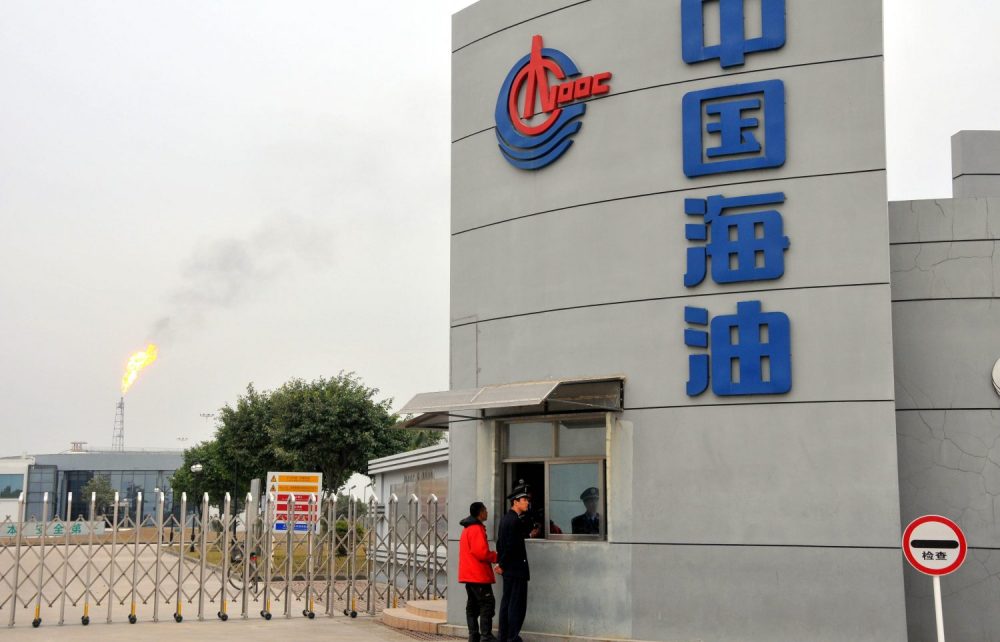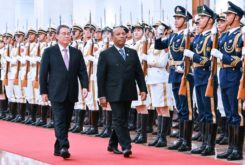China National Offshore Oil Corp (CNOOC)’s expanding presence in Brazil will in turn ensure sufficient energy supply for China, according to company officials.
The ultra-deepwater pre-salt Mero oilfield in Brazil was put into operation last week, the latest effort by the country’s top offshore oil and gas producer to step up overseas oil and gas production.
Wang Dongjin, chairman of CNOOC, said the operation of the ultra-deepwater pre-salt oilfield is a major milestone in China-Brazil energy cooperation, and the company will take advantage of the project in Brazil to further step up energy cooperation in countries and regions involved in the Belt and Road Initiative.
China´s CNOOC puts 1st phase of Mero oilfield into production in Brazil
With a total investment of more than USD 20 billion, the Mero oilfield, located in Brazil’s Santos Basin, can produce 180,000 barrels of crude oil per day and is expected to reach its peak production by the end of 2022, the company said.
CNOOC Ltd, the exploration and production arm of CNOOC, the country’s top offshore oil and gas driller and one of the largest independent oil and gas exploration and production companies in the world, currently holds a 9.65% working interest in the Mero block, alongside operator Petrobras (38.6%), and partners Shell PLC (19.3%), TotalEnergies (19.3%) and China National Petroleum Corp (9.65%), and Pre-Sal Petroleo SA holds 3.5% as the Federal Union representative in non-contracted areas.
The exploration of pre-salt oilfields, which account for one-third of global oil reserves, has become one of the major trends in the global oil industry in recent years, said Huang Yehua, general manager of the Brazilian unit of CNOOC, quoted by Xinhua.
China’s CNOOC to Buy Brazil Oilfield Stake for USD 2.1 billion
Huang said CNOOC has been actively laying out plans to take part in pre-salt oilfield projects worldwide and will continue stepping up investment in the sector.
In addition to the Mero field, which is also the third-largest ultra-deepwater pre-salt oilfield in the world that boasts high-quality and high-yield carbonate reservoirs, the company also has a 5% stake in the Buzios field in the Santos Basin pre-salt area with an annual production capacity exceeding 3 million metric tons, he said.
Despite their high oil and gas production, pre-salt oilfields are usually located in ultra-deep water and are challenging for exploitation and exploration. CNOOC’s extensive participation in global giant ultra-deepwater pre-salt oilfields illustrates that China has mastered advanced technologies of exploration, which will further provide momentum for future innovation, said Li Ziyue, an analyst with BloombergNEF.
Brazil Set to Become Top-5 Global Oil Producer, With China as Main Client
Offshore oil and gas production is expected to continue rising over the next few years with great upside potential, Li said.
According to the China Offshore Energy Report drafted by the CNOOC Energy Economics Institute, CNOOC’s offshore oil and gas production projects are ranked top in the world.
Between 2017 and 2018, CNOOC Ltd has added three more blocks-two located in the Santos Basin and one located in the Espirito Santo Basin (Block 592). In deepwater Block 592, CNOOC Ltd has begun exploration as the operator of the block, holding 100% interest.
Brazil Rises to Become China’s Fourth Major Oil Supplier, Angola Slips
In access to public information, the Brazilian market plays a key role in China’s energy supply as 10% of China’s crude imports last year came from South America and Brazil has always been a major crude provider.
According to Huang, while the Brazilian unit of CNOOC will further expand its presence in the South American market, it will also be in talks with Chinese refiners and expand potential sales channels to ensure domestic energy security in the country from overseas oilfields.
CNOOC Ltd said earlier that its planned capital expenditure for 2022 will be between 90 billion yuan (USD 13.62 billion) and 100 billion yuan, with exploration, development, production and others to account for approximately 20%, 57%, 21% and 2%, respectively, of its total spending.
In addition to its ever-expanding presence in South America, the company has also successfully inked a natural gas sales agreement in Nigeria last year as it vows to further increase investment in its existing oil and gas operation in the country, which it described as one of its most strategic and important overseas business undertakings.




